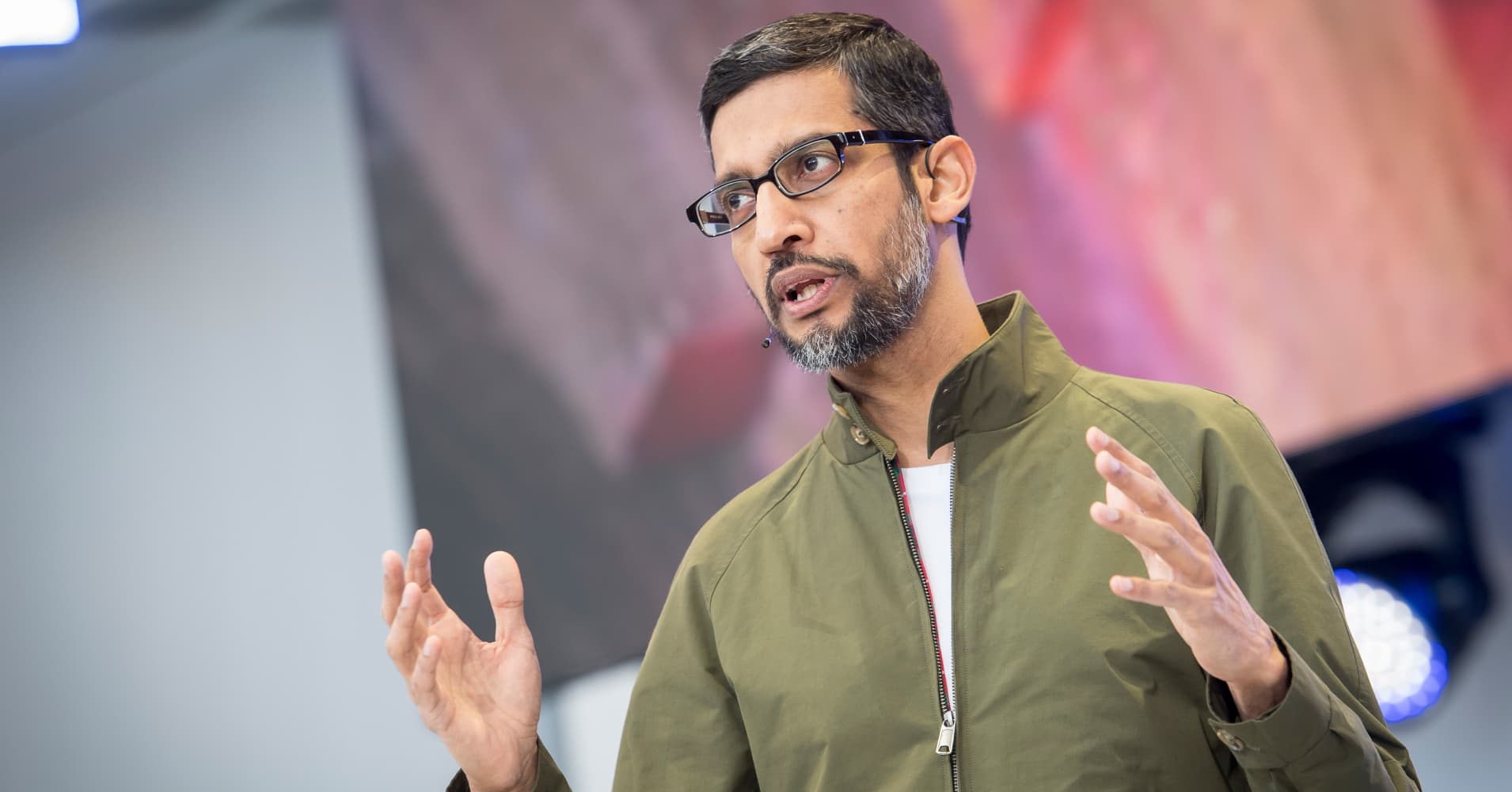
David Paul Morris | Bloomberg | Getty Images
Sundar Pichai, chief executive officer of Google Inc., speaks during the Google I/O Developers Conference in Mountain View, California, U.S., on Tuesday, May 8, 2018.
At an internal meeting on Thursday, Google CEO Sundar Pichai expressed interest in continuing to expand the company’s services in China, but told employees that the company was “not close” to launching a search product there and that whether it would — or could — “is all very unclear.”
Pichai’s remarks, shared with CNBC by a Google employee, come in the of wake of internal and external backlash following a report from The Intercept in early August that the company was secretly building a censored version of its search engine to launch in China. The effort, dubbed “Project Dragonfly” internally, reportedly included blocking search results for sensitive queries, like “peaceful protest,” or suppressing certain search results off of the first page.
Google initially withdrew its search service from China in 2010 due to increased concerns about censorship and cyber attacks, subsequently losing access to the enormous market of 772 million internet users there. Earlier on Thursday, hundreds of employees signed a letter saying that the reported plans raised “urgent moral and ethical issues” and calling for more transparency.
At the company meeting, Pichai said that Google has been “very open about our desire to do more in China,” and that the team “has been in an exploration stage for quite a while now” and “exploring many options.”
To launch a censored search app in China, Google would face both regulatory and technical hurdles.
The relationship between China and the United States is currently strained by trade conflicts, and a Chinese official told Reuters at the beginning of August that a censored search product did not yet have approval from local authorities.
Plus, Pichai admitted on Thursday that a potential Chinese search engine would be “very, very behind from a quality standpoint.” Before Google’s search shut down in China, it had less than 30 percent market share, while local giant Baidu had more 76 percent.
Despite not offering search since 2010, Google never actually left China completely, maintaining office space and employees, and releasing a translation and file organization app there in recent years.
“Stepping back, I genuinely do believe we have a positive impact when we engage around the world and I don’t see any reason why that would be different in China,” Pichai said.
Google co-founder Sergey Brin, who was vocal about Chinese censorship when Google departed in 2010, also spoke at the meeting, saying that any service that Google has launched or prototyped in China has had “a certain set of trade-offs.”
“There’s a handful of things we have been able to ship in China and that’s great,” he said. “You know, it’s slow going and complicated.”
Be the first to comment